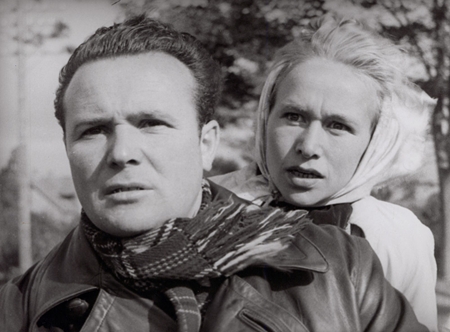From the Chicago Reader (February 1, 1997). I had a great time talking to Varda about this film at Chicago’s Music Box on October 14, 2015. — J.R.
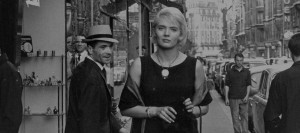
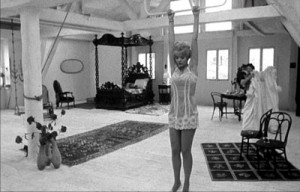
Agnes Varda’s 1961 New Wave feature — recounting two hours in the life of a French pop singer (Corinne Marchand) while she waits to learn from her doctor whether she’s terminally ill — is arguably her best work, rivaled only by her Vagabond (1985) and The Gleaners and I (2000). Beautifully shot and realized, this film offers an irreplaceable time capsule of Paris, and fans of Michel Legrand won’t want to miss the extended sequence in which he visits the heroine and rehearses with her. The film’s approximations of real time are exactly that — the total running time is 90 minutes — but innovative and thrilling nonetheless. Underrated when it came out and unjustly neglected since, it’s not only the major French New Wave film made by a woman, but a key work of that exciting period — moving, lyrical, and mysterious. With Antoine Bourseiller. In French with subtitles. (JR)
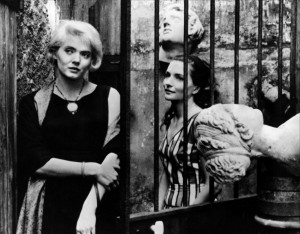
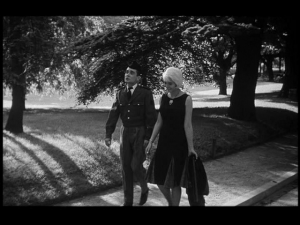 Read more
Read more
From Monthly Film Bulletin, December 1974 (Vol. 41, No. 491).
It’s really a pity that the version of California Split that eventually came out
on DVD, due to musical clearances, had to eliminate some of the play with
Phyllis Shotwell’s songs alluded to here. (For a much later consideration of
this film, including these changes, go here.) — J.R.

CALIFORNIA SPLIT
U.S.A., 1974Director: Robert Altman

In a poker game at a gambling casino near Los Angeles, Charlie
Waters, a winner, is accused by Lew, a sore loser, of playing in
cahoots with the dealer, Bill Denny. Bill and Charlie become
acquainted afterwards in a nearby bar and get cheerfully drunk
together; outside, they are beaten up by Lew (with the help of
friends), who makes off with their winnings. Charlie invites
Bill to stay over at his house, which he shares with two
prostitutes, Barbara and Susan. In the morning, Bill returns to
his job on a glossy magazine but is persuaded to take off that
afternoon and join Charlie at the racetrack, where they make
a small fortune on one of Charlie’s hunches. Wanting to celebrate
with Barbara and Susan, they pretend to be policemen in order to
intimidate the girls’ transvestite client “Helen” and persuade
him to leave, then go to a prizefight. Read more
I no longer know when I wrote this story, although it was obviously written before I wrote digitally, because the typescript I recently came across, which I’ve revised here only slightly, clearly came from a typewriter. (I suspect that most or all of it was written in Santa Barbara in the mid-1980s, although I may have started it much earlier.) A few of the details are autobiographical in origin (e.g., I grew up with three brothers, but certainly without a nanny, and the description of the grandparents’ mansion mostly corresponds to my own grandparents’ home in Florence, Alabama, owned and occupied today by a local friend), but most of them obviously aren’t.
I’ve hesitated about publishing much of my fiction on this site because the responses to my stories so far have been fairly minimal — a likely result of “niche marketing” that tends to associate this site almost exclusively with film (or, to a lesser extent, jazz and reviews of prose fiction) — but I’ve decided to repost this with links on Facebook and Twitter just to see if this changes anything. — J.R.
Family Plots
1.
The restaurant was so crowded that they had to assign all six of us to separate tables, with careful instructions to deliver five of the checks to Daddy-Pop after the meal, reconvene, and then go to see a Marx Brothers double feature down the street. Read more
Adapted from “Cannes, tour de Babel critique,” translated by Jean-Luc Mengus, in Trafic no. 23, automne 1997. –- J.R.
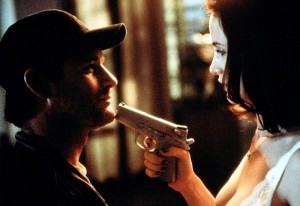
By common agreement, the fiftieth anniversary of the Cannes
Film Festival, prefigured as a cause for celebration, wound up serving
more often as an occasion for complaint. Disappointment in the over-
all quality of the films ran high, even if the arrival over the last four days
of films by Abbas Kiarostami, Atom Egoyan, Youssef Chahine, and
Wong Kar-wai improved the climate somewhat. But I don’t mean to
suggest that the shared feelings of anger and frustration demonstrated
any critical unanimity. On the contrary, the overall malaise of Cannes this
year forced to a state of crisis the general critical disagreement and lack
of communication that has turned up repeatedly, in a variety of forms.
If the pressing question after every screening at Cannes is whether a film
is good or bad (or, more often, given the climate of hyperbole,
wonderful or terrible) — a question that becomes much too pressing, because
it short-circuits the opportunity and even the desire to reflect on a film for
a day or week before reaching any final verdict about it — the widespread
disagreements at the festival derived not only from different and
irreconcilable definitions of “good” and “bad,” but also from different and
irreconcilable definitions of “film.” Read more
From the Chicago Reader (September 1, 1987). This film is now available on Blu-Ray from Twilight Time. — J.R.
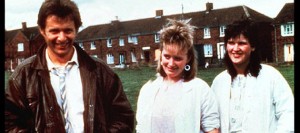
Rita (Siobhan Finneran) and Sue (Michelle Holmes), two teenagers in the north of England who are the best of friends, lose their virginity to Bob (George Costigan), a suburban husband they sometimes baby-sit for, and before long their amicable three-way relationship is scandalizing the neighbors and members of their families, including Bob’s wife Michelle (Lesley Sharp). Shot in and around the town of Bradford in long, loping takes, this sprightly comedy, adapted by Andrea Dunbar from her own play, has some of the energy that one associates with the better exploitation films that used to be produced by Roger Corman. Television director Alan Clarke has a fine time showing how the working-class white and Pakistani communities rub shoulders with the middle class, and although the plot has curious omissions — we never discover, for instance, what Bob does for a living — the spirited acting and direction turn this into something of a lark (1987). (JR)

Read more
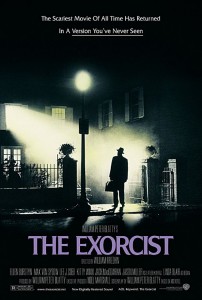
“Doubtless this tale of spirit possession in Georgetown packs a punch, but so does wood alcohol,“ wrote Reader critic Don Druker in an earlier review of this. I wouldn’t be quite so dismissive: as a key visual source for Mel Gibson’s depiction of evil in The Passion of the Christ as well as an early indication of how seriously pulp can be taken when religious faith is involved, this 1973 horror thriller is highly instructive as well as unnerving. William Friedkin, directing William Peter Blatty’s adaptation of his own novel, aims for the jugular, privileging sensation over sense and such showbiz standbys as vomit and obscenity over plodding exposition. This 2000 rerelease runs 132 minutes, 11 minutes longer than the original; with Ellen Burstyn, Max von Sydow, Jason Miller, Linda Blair, and Lee J. Cobb. R. (JR)
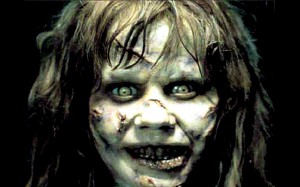 Read more
Read more
Made for the unthinkable sum of $7,000, Paul E. Garstki’s independent black-and-white Chicago-based feature both profits and suffers from its impoverished budget. On the plus side, a largely postdubbed sound track allows the filmmakers to tell parts of the story through the ingenious economical device of using answering-machine messages and imaginary phone conversations offscreen. A thoughtful use of local talent (stage actors John Ellerton, Warren Davis, and Diana Zimmer as the three leads and lots of local independent filmmakers in secondary parts) and locations also makes the best use of William Holst’s somewhat minimalist script, adapted from a story by Garstki. A reclusive art critic hires a young protege, who moonlights as a surveillance photographer, to go to work on a young woman (an odd plot with faint echoes of The Draughtsman’s Contract and Paul Bartel’s The Secret Cinema, without much of the humor connected to either). The main budgetary drawback is the nearly nonexistent social context; the stilted art-world talk generally fails to convince because there isn’t enough of a world in the film to establish it as either parody or the genuine article, and the characters themselves seem at times excessively limited by the exigencies of the plot. The result, then, is uneven but singular–a quirky, rather disturbing little film about voyeurism and loneliness. Read more
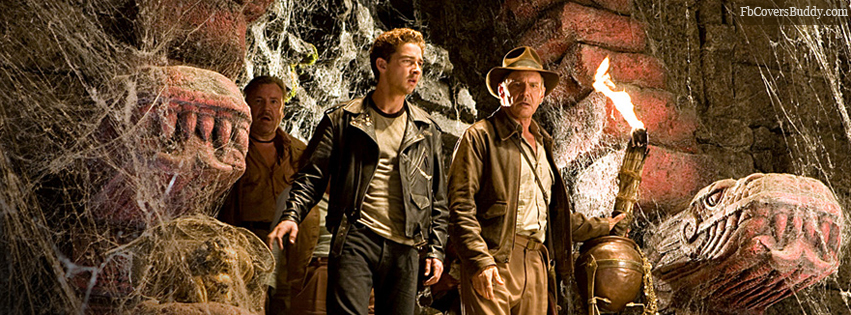
The unholy mix of George Lucas’s colonialist nostalgia and Steven Spielberg’s fluency with action becomes more self-conscious in this fourth Indiana Jones outing. In 1957, two decades after the events of Indiana Jones and the Last Crusade, the hero (Harrison Ford) joins forces with his old flame from Raiders of the Lost Ark (Karen Allen) and a young punk (Shia LaBeouf) to combat a Commie villain (Cate Blanchett, doing a variation on Garbo’s Ninotchka) in a remote corner of Peru. The character and plot contrivances are dumber than ever, but this is basically vaudeville, not narrative, and the thrills keep coming. (Once Indy has survived a nuclear blast early on, going over three waterfalls in a row without wetting his lighter is par for the course.) Spielberg’s extravagant action, much of it staged on what look like old sets from King Kong, includes pointed steals from The Naked Jungle (1954), Land of the Pharaohs (1955), The Ten Commandments (1956), and his own Close Encounters, E.T., and A.I. PG-13, 124 min. (JR)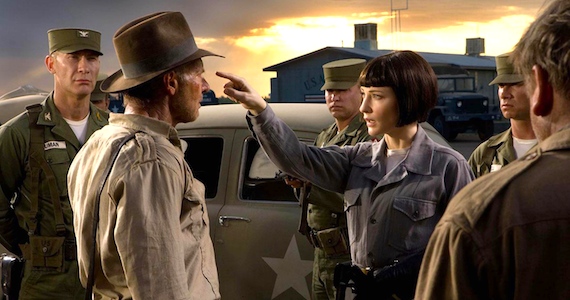 Read more
Read more
From the Chicago Reader (August 25, 1995). — J.R.
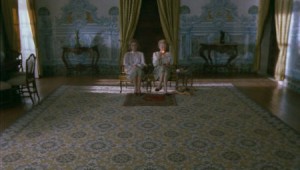
Valley of Abraham
*** (A must-see)
Directed and written by Manoel de Oliveira
With Leonor Silveira, Cecile Sanz de Alba, Luis Miguel Cintra, Rui de Carvalho, Luis Lima Barreto, Diogo Doria, Jose Pinto, and Isabel Ruth.
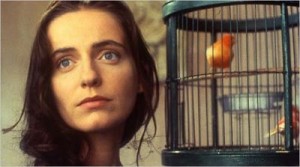
I think the most important intellectual discovery I’ve made in the past year came from the early pages of Eric Hobsbawm’s The Age of Extremes: A History of the World, 1914-1991. In a way, it’s an observation so obvious that I wonder why it never occurred to me before: “Unlike the ‘long 19th century,’ which seemed, and actually was, a period of almost unbroken material, intellectual and moral progress…there has, since 1914, been a marked regression from the standards then regarded as normal in the developed countries and in the milieus of the middle classes and which were confidently believed to be spreading to the more backward regions and the less enlightened strata of the population….Since this century has taught us, and continues to teach us, that human beings can learn to live under the most brutalized and theoretically intolerable conditions, it is not easy to grasp the extent of the, unfortunately accelerating, return to what our 19th century ancestors would have called the standards of barbarism.” Read more
From the Chicago Reader (May 1, 1997). — J.R.
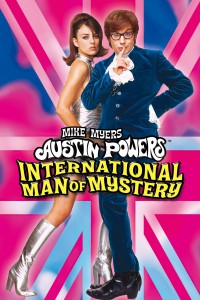
After 30 years of cryogenic preservation, the title hero (a spin-off of James Bond and his clones) and his archenemy Dr. Evil — both played by writer and coproducer Mike Myers (Wayne’s World) — emerge in the present to match wits all over again. What’s really fun about this silly but spirited comedy isn’t just the ribbing of swinging London fashion and social attitudes but the use of the compulsive zooms and split-screen mosaics of commercial movies of the 60s (some of the funniest gags derive from camera placement). There’s a bit of fudging when it comes to the romantic interest: sidekick Elizabeth Hurley initially blanches at Austin Powers’s advances but succumbs as soon as he treats her to a night on the town in Las Vegas, complete with champagne and Burt Bacharach. But 60s (and 50s) icons like Robert Wagner and Michael York (playing someone called Basil Exposition) make this exercise in historical relativity even funnier. Jay Roach directed with just the right amount of period tackiness. With Mimi Rogers, Seth Green, and Fabiana Udenio (as Alotta Fagina). (JR)
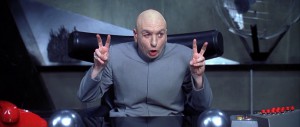 Read more
Read more
From Monthly Film Bulletin, September 1976, Vol. 43, No. 512. — J.R.

De Naede Faergen (They Caught the Ferry)
Denmark, 1948
Director: Carl Th. Dreyer
Dist–Guild Sound & Vision. p.c–Ministeriernes Filmudvalg. sc–Carl Th. Dreyer. Derived from a work by Johannes V. Jensen. ph–Jørgen Roos. ed–Carl Th. Dreyer. sd–Jorgen Roos. l.p–(not credited). 408 ft. 11 mins. (16 mm.).

Behind the credits, accompanied by the ominous sound of three beats on a kettledrum, a ferry arrives at the Assens-Aarøsund landing. After some reverse-angle cuts between ferry and landing, a motorcyclist on board asks the captain about the next departure of the ferry on the other side of the island. ToId that it leaves in forty-five minutes but that he’ll never make it — the other ferry being seventy-five kilometres away — the man replies, “I must get it” and, with a female companion clinging to his waist, drives off the boat behind a line of other cyclists.
He quickly accelerates from 40 to 80 km. per hour, and his race down a country road is illustrated by moving shots which alternate his viewpoint (passing trees, close-ups of speedometer) with ‘objective’ angles (shots behind or ahead of his bike, close-ups of wheels). After stopping at a petrol station, where he urges the female attendant to hurry and she replies that he’lI have to drive fast to make the ferry. Read more
From the Chicago Reader (January 24, 2008). — J.R.
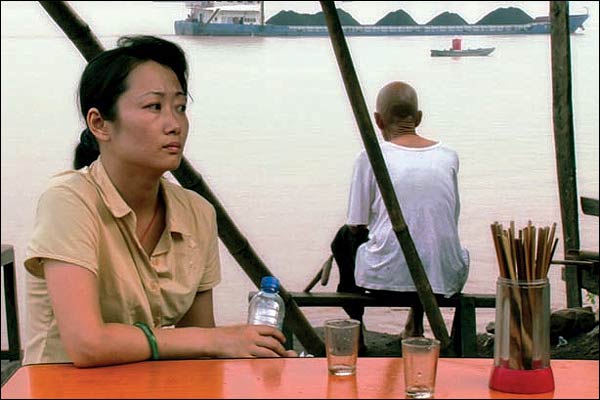
The fifth feature by Jia Zhang-ke, China’s greatest contemporary filmmaker, is set in the vicinity of China’s immense Three Gorges, where the ongoing construction of the world’s largest dam has already forced the relocation of almost two million people. Against this epic canvas, their paths crisscrossing but never intersecting, a coal miner and a nurse (both from Jia’s home province of Shanxi) search for their former mates. This 2006 drama may seem to be worlds apart from the surreal theme-park setting of Jia’s previous film, The World, but there are similarities of theme, style, scale, and tone: social and romantic alienation in a monumental setting, a daring poetic mix of realism and lyrical fantasy, and an uncanny sense of where our planet is drifting. In Mandarin and Shanxi with subtitles. 107 min. (JR)
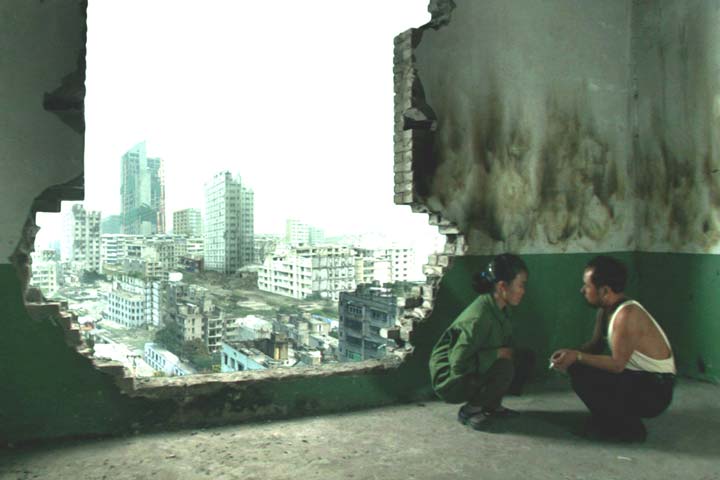 Read more
Read more
From Monthly Film Bulletin, December 1976 (Vol. 43, No. 515). — J.R.
One Second in Montreal
Canada, 1969
Director: Michael Snow
Dist–London Filmmakers’ Co-op/Cinegate. p.c /p/ph/ed–Michael Snow. 612 ft. (at 16 f.p.s.) 26 mins.; (at 24 f .p.s.) 17 mins.
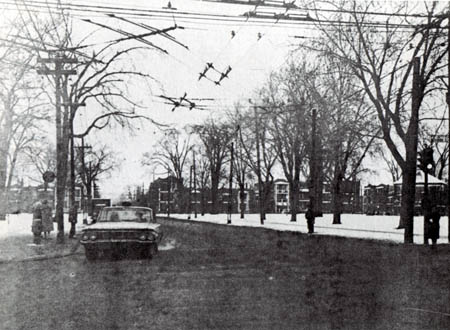
A series of thirty-odd black and white still photographs – all showing park sites for a projected monument in Montreal covered with blankets of snow — are rephotographed and shown in succession; the duration of each photograph on the screen progressively increases during the first section of the film, and progressively decreases during the second, which ends with a ‘flash’ repeat of the initial title card. A simple experiment in what might be described as the phenomenology of duration in relation to the viewer’s attention and grasp of detail, One Second in Montreal apparently owes its title to the fact that the combined exposure time of the original photographs adds up to only one second.
Praised somewhat hyperbolically as a “cinematic construction which plays upon the seriality of film images” (Annette Michelson) and a “snow film so silent you can hear the snow fall” (Jonas Mekas), the film is an ‘open’ work in the sense that it can be projected at either 16 or 24 frames per second. Read more
From the Chicago Reader (October 8 , 1993). — J.R.
Let’s start with the bad news, which also happens to be the good news. With the erosion of state funding virtually everywhere and the concomitant streamlining of many film festivals toward certifiable hits — basically what an audience already knows, or worse, what it thinks it knows — there isn’t a great deal of difference anymore between the lineups of most large international festivals, including Cannes, Berlin, Venice, Toronto, and even Chicago. By and large, the critics at Toronto last month, myself included, who thought it was an unusually good festival were those who hadn’t made it to the previous three big festivals.
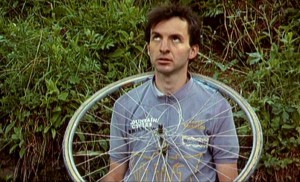
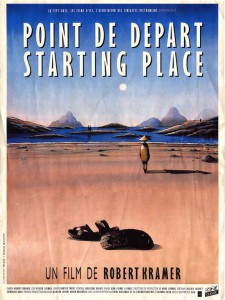
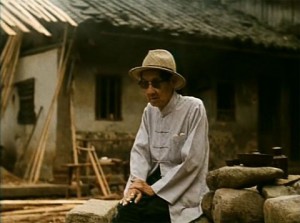
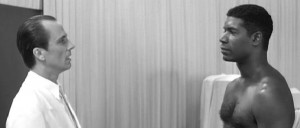
Some films don’t make every list, of course. Luc Moullet, probably the most gifted comic filmmaker working in France, almost never seems to attract international interest, and I was disappointed to discover that his delightful Parpaillon, which I saw in Rotterdam, was passed over by Toronto, Chicago, and New York. The same goes for Robert Kramer’s Starting Place, which I saw in Locarno — a beautifully edited and moving personal documentary about contemporary Vietnam. I’m also sorry that Hou Hsiao-hsien’s The Puppetmaster and an intriguing American independent effort called Suture, both of which I saw in Toronto, are missing from the Chicago roster. Read more
From the Chicago Reader (August 1, 1987). — J.R.
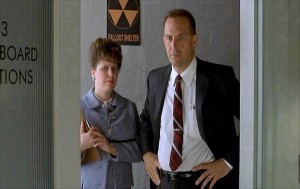
Kevin Costner, suffering as nobly here as in The Untouchables, plays a naval officer hired by the secretary of defense (Gene Hackman), whose mistress he has been unwittingly sharing. While credited as an adaptation of Kenneth Fearing’s novel The Big Clock (which was already made into a movie in 1948, directed by John Farrow), this taut thriller adds so many twists of its own it might be more appropriately cross-referenced with The Manchurian Candidate, even though it isn’t nearly as daffy or as mercurial. Cornball Dolby effects aside, it’s the kind of intricately plotted suspense film with juicy secondary parts (Sean Young, Will Patton, George Dzundza, Iman, Howard Duff) that used to be churned out in the 1940s; Roger Donaldson, the New Zealand director of Smash Palace, The Bounty, and Marie, delivers coproducer Robert Garland’s efficient script with more bombast than brilliance, but at least it keeps you in your seat (1987). (JR)
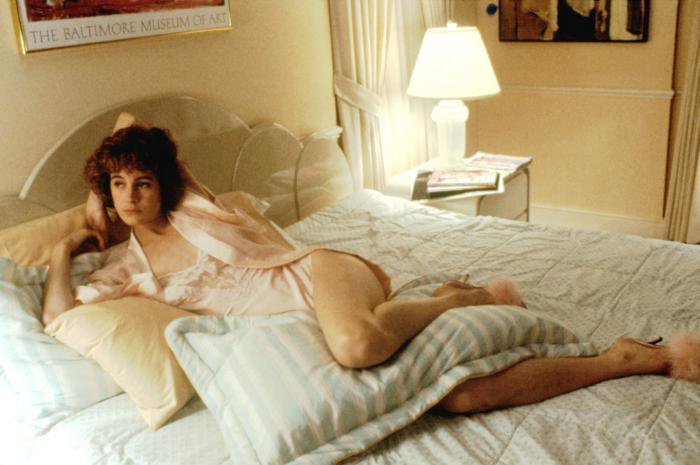 Read more
Read more


















